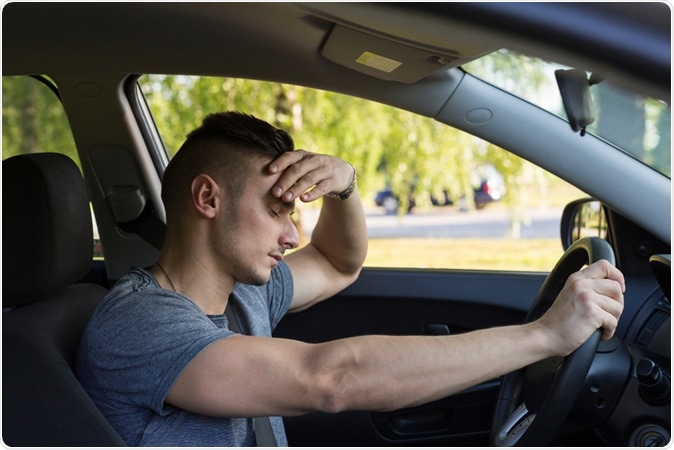A new study has found that users of heroin have high levels of a brain chemical called hypocretin. This hypocretin leads to “wakefulness” among the users and understanding this could help patients with narcolepsy.
The study results titled, “Opiates increase the number of hypocretin-producing cells in human and mouse brain and reverse cataplexy in a mouse model of narcolepsy” are published in the latest issue of the Science Translational Medicine.

Image Credit: Goads_Agency / Shutterstock
Patients with narcolepsy fall asleep uncontrollably. Among normal humans the brain has around 70,000 cells that produce hypocretin. In people with narcolepsy around 90 percent of these cells have stopped producing hypocretin that affects their wakefulness and alertness. In this new study the team of researchers noted that heroin users were making large amounts of hypocretin within their brains.
The team from University of California at Los Angeles led by Jerome Siegel looked at the brains of five previously dead heroin users at their post mortems. They found that these heroin users had an average of 54 percent higher hypocretin making brain cells than normal individuals. According to Siegel, this rise in the brain cells that produce hypocretin could be the basis of the drug-seeking behavior of the addict. According to his explanation, heroin users make too much of it while narcoleptics make too little of hypocretin in their brains. So if treatment could be used to restore the levels of hypocretin to normal in either brain, it would benefit both.
Siegel and his team gave morphine – an addictive opioid, to mice that were genetically engineered to have narcolepsy. Morphine is a similar drug to heroin and was administered for two weeks. After the treatment period they noted that the hypocretin levels in the brains of the engineered mice reached normal and the symptoms were alleviated. The team is on the lookout for non addictive alternatives to morphine to try on narcolepsy and test it for its efficacy. Milder drugs are codeine is being tried. Highly addictive drugs such as morphine cannot be, for practical purposes, used for the treatment of narcolepsy.
Narcolepsy affects around 200,000 Americans. This typically causes sleepiness and exhaustion throughout the day despite adequate sleep. In these patients there is significantly lower amount of rapid eye movement (REM) sleep that is the restorative phase of the sleep. Lack of REM sleep leads to complications such as hallucinations, sleepwalking, cataplexy and sleep paralysis. Cataplexy means losing control over the muscles and dozing off suddenly during waking hours.
Siegel said the next step of the study would be to understand why opiates can “awaken” these cells.